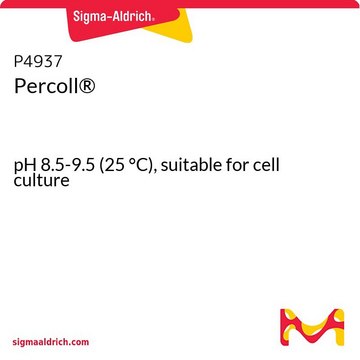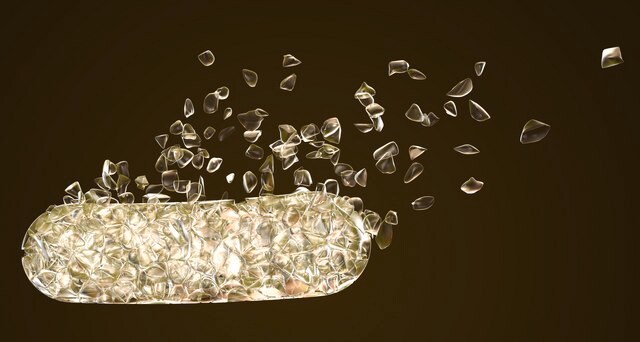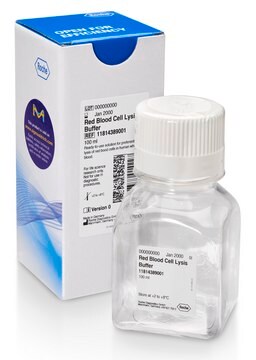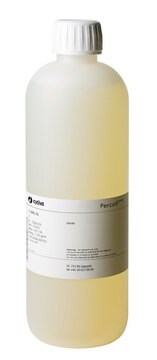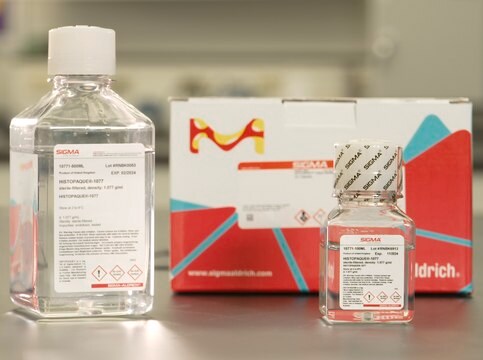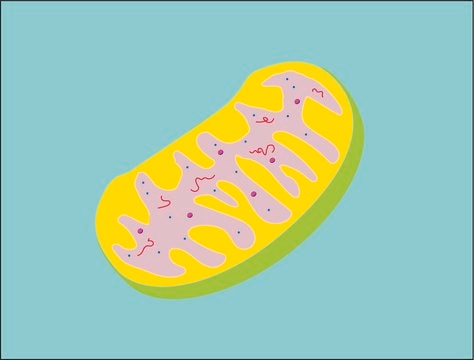CPISO
Chloroplast Isolation Kit
isolation of intact chloroplasts from leaves
Synonyme(s) :
Chloroplast Purification Kit, Isolation Kit for Chloroplast, Kit for Chloroplast Isolation
Se connecterpour consulter vos tarifs contractuels et ceux de votre entreprise/organisme
About This Item
Code UNSPSC :
12352200
Nomenclature NACRES :
NA.32
Produits recommandés
Niveau de qualité
Technique(s)
centrifugation: suitable
Conditions d'expédition
wet ice
Température de stockage
2-8°C
Description générale
The Chloroplast Isolation Kit provides an efficient procedure for isolating intact chloroplasts from plant leaves. The procedure involves mechanical cell wall and cell membrane breakage, removal of cell debris and leaf tissue by filtration, collection of total cell chloroplast fraction by centrifugation, and separation of intact chloroplasts from broken chloroplasts using a Percoll® layer or gradient.
Application
Chloroplast Isolation Kit may be used in chloroplast organelle research to isolate intact chloroplasts from plant leaves for structural and functional studies.
Caractéristiques et avantages
- Specifically formulated buffer - Saves time using easy to follow simple and proven protocols
- Isolates intact chloroplasts - Useful for studies of such processes as carbon assimilation, electron flow and phosphorylation, metabolic transport or protein targeting
- Total organelle protein complement - Useful for functional studies, metabolic transport, proteomic profiling, and genomic applications
- Convenient format - Saves time and reduces waste
Adéquation
The Chloroplast Isolation Kit has been tested for use with spinach, pea, lettuce, cabbage, mangold, and tobacco.
Composants de kit également disponibles séparément
Réf. du produit
Description
FDS
Code de la classe de stockage
10 - Combustible liquids
Faites votre choix parmi les versions les plus récentes :
Déjà en possession de ce produit ?
Retrouvez la documentation relative aux produits que vous avez récemment achetés dans la Bibliothèque de documents.
Les clients ont également consulté
Martha Sainz et al.
Physiologia plantarum, 140(1), 46-56 (2010-05-22)
Drought and heat stress have been studied extensively in plants, but most reports involve analysis of response to only one of these stresses. Studies in which both stresses were studied in combination have less commonly been reported. We report the
Sarah Conte et al.
Plant physiology, 151(2), 559-573 (2009-08-14)
Widespread antibiotic resistance is a major public health concern, and plants represent an emerging antibiotic exposure route. Recent studies indicate that crop plants fertilized with antibiotic-laden animal manure accumulate antibiotics; however, the molecular mechanisms of antibiotic entry and subcellular partitioning
Diana V Dugas et al.
Scientific reports, 5, 16958-16958 (2015-11-26)
The Leguminosae has emerged as a model for studying angiosperm plastome evolution because of its striking diversity of structural rearrangements and sequence variation. However, most of what is known about legume plastomes comes from few genera representing a subset of
Esau Megias et al.
The protein journal, 37(3), 290-299 (2018-05-29)
Tymovirus is a genus of plant pathogenic viruses that infects several dicotyledonous plants worldwide, causing serious diseases in economically important crops. The known cytopathic effect on the host cell organelles involves chloroplast membrane deformation and the induction of vesicles in
The Complete Chloroplast Genome of 17 Individuals of Pest Species <I>Jacobaea vulgaris</I>: SNPs, Microsatellites and Barcoding Markers for Population and Phylogenetic Studies.
Doorduin, L., et al.
DNA Res., 1-13 (2011)
Notre équipe de scientifiques dispose d'une expérience dans tous les secteurs de la recherche, notamment en sciences de la vie, science des matériaux, synthèse chimique, chromatographie, analyse et dans de nombreux autres domaines..
Contacter notre Service technique
